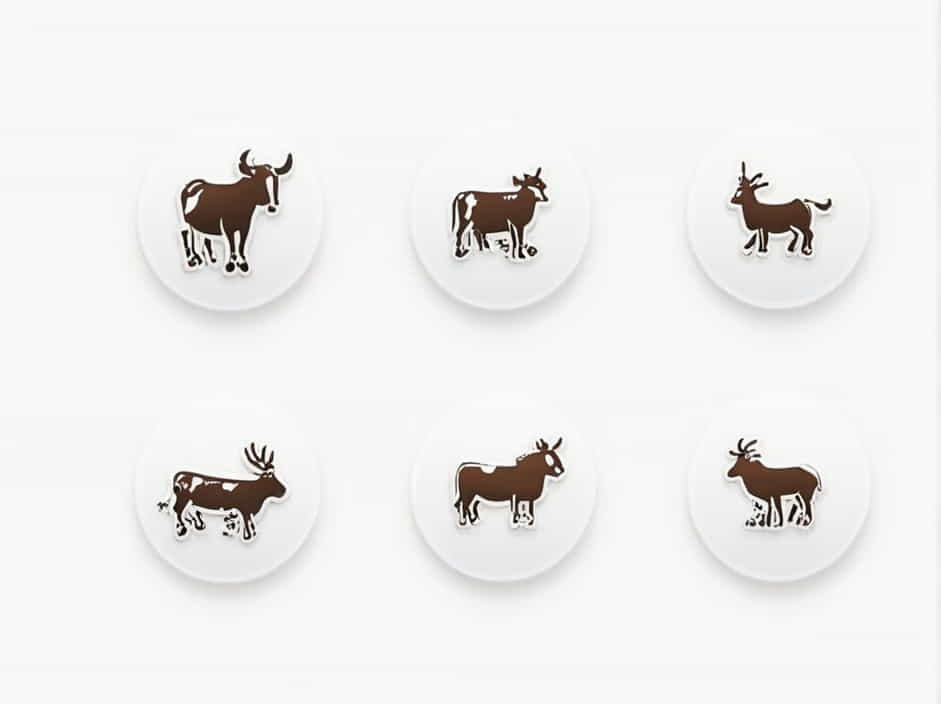French agriculture is one of the most diverse and influential in the world. Known for its high-quality products, traditional farming methods, and strong government support, France is a leading agricultural powerhouse in Europe.
What makes French agriculture unique? This topic explores the key characteristics, strengths, and challenges of French farming, highlighting its special role in the global food industry.
1. The Diversity of French Agriculture
One of the greatest particularities of French agriculture is its diversity. The country’s varied climate, geography, and soil conditions allow for the production of a wide range of crops and livestock.
1.1 Different Agricultural Regions
France has several distinct agricultural regions, each specializing in different products:
- Northern France – Known for cereal crops like wheat, barley, and corn.
- Brittany and Normandy – Famous for dairy farming and apple orchards.
- Bordeaux and Burgundy – World-renowned wine production regions.
- Provence – Produces olives, lavender, and Mediterranean fruits.
- The Alps and Pyrenees – Specialize in cheese-making and livestock farming.
1.2 A Mix of Traditional and Modern Farming
French agriculture balances tradition and innovation. Many farmers continue using age-old techniques, such as organic farming and rotational grazing, while others adopt modern technology like precision farming and AI-driven monitoring.
2. The Importance of Wine and Cheese Production
2.1 France’s Global Influence in Winemaking
France is one of the world’s leading wine producers, known for regions like:
- Champagne – Produces the famous sparkling wine.
- Bordeaux – Renowned for red wines with deep flavors.
- Burgundy – Home to prestigious Pinot Noir and Chardonnay wines.
French wine production follows the Appellation d’Origine Contrôlée (AOC) system, ensuring strict quality standards and regional authenticity.
2.2 The Art of French Cheese
France is home to over 1,000 varieties of cheese, making it one of the most important cheese-producing countries. Some of the most famous include:
- Brie – Soft and creamy, known as the “Queen of Cheeses.”
- Roquefort – A famous blue cheese made from sheep’s milk.
- Camembert – A popular Normandy cheese with a strong aroma.
- Comté – A hard cheese aged for months to develop a nutty flavor.
Cheese production in France is often artisanal, following centuries-old methods.
3. Government Support and Agricultural Policies
The French government plays a crucial role in supporting farmers. France is one of the largest beneficiaries of the European Union’s Common Agricultural Policy (CAP), which provides:
- Subsidies to farmers to maintain agricultural production.
- Price controls and market regulations to ensure stability.
- Support for sustainable and organic farming practices.
These policies help protect small farms, promote high-quality food production, and maintain France’s agricultural heritage.
4. A Strong Commitment to Sustainable Farming
4.1 Organic and Sustainable Practices
France has seen a significant increase in organic farming. The government encourages:
- Reduced pesticide use to protect soil and water quality.
- Crop rotation and biodiversity to improve sustainability.
- Certified organic products, labeled as “Agriculture Biologique (AB)”.
4.2 Agroecology and Environmental Awareness
Many farmers practice agroecology, combining traditional knowledge with ecological science to produce food sustainably. This helps in:
- Preserving biodiversity.
- Reducing carbon footprints.
- Enhancing soil health for long-term productivity.
5. Challenges Facing French Agriculture
Despite its strengths, French agriculture faces several challenges:
5.1 Climate Change and Extreme Weather
- Rising temperatures and unpredictable weather affect crop yields.
- Droughts and floods threaten vineyards and livestock farming.
5.2 Aging Farmer Population
- The average French farmer is over 50 years old.
- Younger generations show less interest in farming, leading to concerns about future food production.
5.3 Global Competition
- French farmers face competition from cheaper imports from other countries.
- Strict regulations make it difficult for small farms to remain profitable.
6. The Future of French Agriculture
The future of French agriculture depends on innovation and adaptation. Key developments include:
6.1 Digital Farming and Smart Agriculture
- Drones and AI help farmers monitor crops and livestock more efficiently.
- Precision farming reduces waste and increases productivity.
6.2 Promotion of Local and Organic Food
- Consumers increasingly prefer locally grown, organic products.
- The “Made in France” label is gaining popularity for its quality assurance.
6.3 Government Reforms and EU Policies
- Continued financial support for farmers is essential.
- New policies aim to make farming more sustainable and profitable.
French agriculture is unique due to its diversity, strong traditions, and global influence in food production. From high-quality wine and cheese to sustainable farming practices, France remains a leader in agriculture.
Despite challenges like climate change and competition, French farmers continue to innovate and adapt. With government support and modern technology, French agriculture will remain a key player in the global food industry for years to come.
